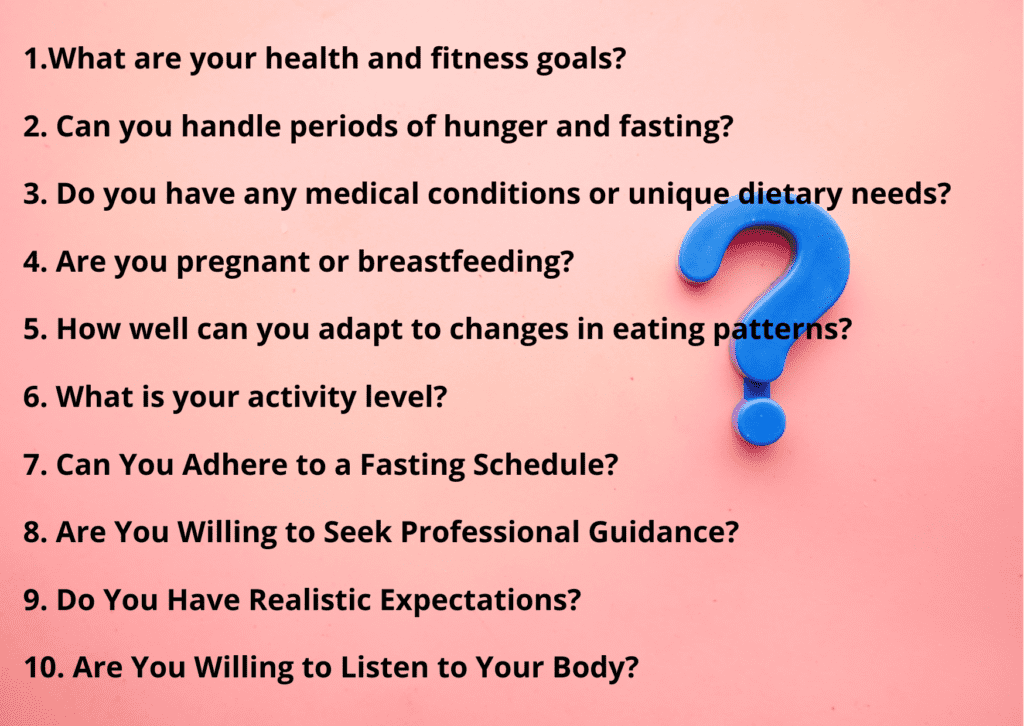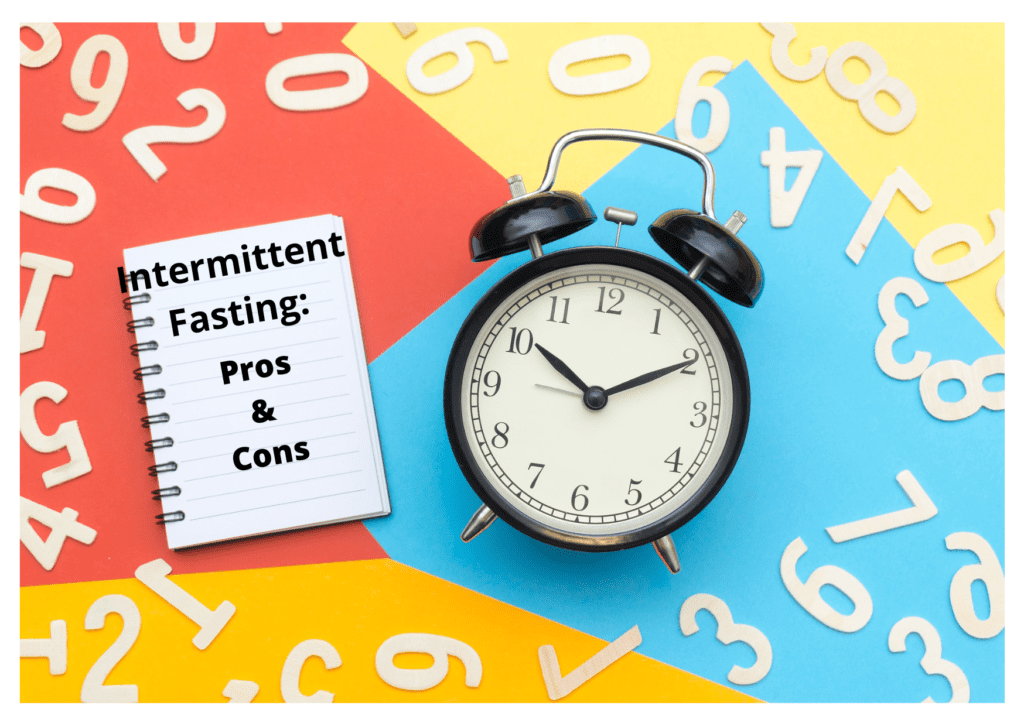IMPORTANT: Intermittent fasting may not be suitable for everyone (for instance, those with certain medical conditions, pregnant and/or breastfeeding). It is recommended to consult a healthcare professional before commencing any new diet or eating pattern.
What is Intermittent Fasting?
Intermittent fasting (IF) is an eating pattern that involves switching periods of fasting and eating. It works through the extension of the period when our bodies have burned the calories consumed during the last meal and beginning to burn fat.
In recent years, IF has risen in popularity, capturing the attention of individuals seeking innovative approaches to health and wellness. This dietary strategy has now gained mainstream recognition due to its potential to facilitate weight management and enhance overall well-being.
From social media influencers to medical experts, discussions around IF have grown.
I have recently posted an article How to Begin Your Journey: Practical Tips for Getting Started with Intermittent Fasting here
 Approaches to Intermittent Fasting
Approaches to Intermittent Fasting
16/8 Method (Time-Restricted Fasting): This method involves fasting for 16 hours each day and restricting eating to an 8-hour window. For example, if you finish dinner at 8 PM, you would refrain from eating until 12 PM the next day.
5:2 Diet (Modified Fasting): In this approach, you consume your regular diet for five days of the week and limit calorie intake to around 500-600 calories on the remaining two non-consecutive days.
Eat-Stop-Eat: With this method, you fast for a full 24 hours once or twice a week. For instance, you might have dinner at 7 PM and not eat again until 7 PM the following day.
Alternate Day Fasting: As the name suggests, you alternate between fasting days and regular eating days. On fasting days, you either abstain from food entirely or consume a very minimal number of calories.
Warrior Diet: This approach involves fasting for around 20 hours and eating one large meal within a 4-hour eating window in the evening.
OMAD (One Meal a Day): As the name implies, you consume all your daily calories in a single meal, typically within a 1-hour window.
Spontaneous Meal Skipping: This flexible method involves skipping meals when you don’t feel particularly hungry or have a busy schedule. It’s less structured and adapts to your body’s cues.
Extended Fasting: This advanced approach involves fasting for more extended periods, such as 48 hours or even several days. It requires careful planning and medical supervision.
With regards to Time-Restricted Feeding, I remember Peter Attia MD (a Canadian-American physician known for his expertise in researching life extension and enhancing people’s overall health) on Joe Rogan’s podcast telling a story about an experiment with mice that fasted for 16 hours and during remaining 8-hours window were allowed to eat anything and as much as they wanted. They could not gain weight (need to test it on my husband 🙂).
Advantages of Intermittent Fasting
Of course, there is still debate among researchers about how much of the benefits of intermittent fasting are because it helps people eat less. Let’s figure them out together.
- Weight loss: Of course! Intermittent Fasting helps with weight loss by reducing calorie intake and increasing fat burning (via metabolic switching when our sugar reserves are used and the body starts burning fat to generate energy). A great bonus is that it may also help preserve muscle mass.
- Improved insulin sensitivity: IF can lower insulin levels and improve insulin sensitivity, which as a result may reduce type 2 diabetes risks.
- Heart health: IF fasting may reduce blood pressure, inflammation markers, and cholesterol levels.
- Brain health: Per several studies, IF may improve brain function (via neuroprotective effects) as well as protect against age-related cognitive deterioration.
- Gut health: Preclinical studies show positive changes in gut microbiome, such as improved gut barrier function.
- Cellular renewal: Intermittent Fasting triggers cellular repair.
The Cons of Intermittent Fasting
On the other hand, IF requires more research on such long-term impacts.
Among the cons, IF, like any dietary approach, carries potential risks and side effects. Here are some of them:
- Dizziness, nausea and headaches during the fasting period. I assume this is a result of toxins getting into the blood flow.
- Insomnia and sleep disturbances – possible sleep pattern disruptions (particularly due to distortion of the natural circadian body rhythms).
- Weakness and fatigue – weakness and fatigue feelings, especially if nutrient intake is unbalanced or incomplete (e.g. insufficient protein intake may also risk muscle atrophy).
- Adverse eating behaviors – after the fasting period, there is a risk of binge eating.
- Dehydration.
Who Follow(ed) Intermittent Fasting
Several celebrities shared their experiences with various methods of IF Jennifer Lopez, Jennifer Aniston, Gisele Bündchen, Kourtney Kardashian, Halle Berry, Terry Crews, Mark Wahlberg, Hugh Jackman, Jimmy Kimmel, Chris Pratt, Elon Musk, Heidi Klum, Reese Witherspoon and others. They also shared some tips & suggestions. Keep reading 🙂
Self-Assessment Questions to Consider

Remember that the decision to try IF should be personalized and well-informed. It’s important to consider both the potential benefits and the challenges that might arise based on your individual circumstances. If you have any doubts or concerns, seeking guidance from a healthcare professional or registered dietitian can provide you with tailored advice that suits your needs and goals. Here are some self-assessment questions to consider when determining if intermittent fasting is right for you.
Tips & Suggestions
- Start gradually – slowly increasing the fasting window, i.e. begin with shorter fasting periods and then gradually increase.
- Stay hydrated – drink plenty of water during both fasting and eating periods to stay hydrated. This also helps reduce feelings of hunger.
- Fasting method – you experiment and choose what suits you the best.
- Stay busy – keep yourself occupied and distracted from thinking about food.
- Sleep enough – this should be another priority as lack of sleep can increase hunger and make fasting more difficult.
- Eat nutrient-complete meals (consider NutriQuorum 🙂) – consume enough quality food and ensure adequate nutrition.
- Supplements – to avoid nutritional gaps due to switching to IF, some may benefit from supplements (e.g. electrolytes or multivitamins). Make sure to choose whole food supplements (which are made from concentrated dehydrated whole foods), not synthetic ones.
- Listen to your body!
Practical Tips for Getting Started with Intermittent Fasting
Read more NutriQuorum articles related to Healthy Lifestyle:
My Top Superfoods To Consider For Your Daily Diet
5 Super Foods You Need To Know About
7 Amazing Morning Habits to Try Right Now
Additional Resources:
- https://www.health.harvard.edu/blog/intermittent-fasting-surprising-update-2018062914156
- https://www.prevention.com/weight-loss/a20500235/intermittent-fasting/#intermittent-fasting-benefits
- https://www.medicalnewstoday.com/articles/319394
- https://onlinelibrary.wiley.com/doi/full/10.1111/j.1467-789X.2011.00873.x
- https://pubmed.ncbi.nlm.nih.gov/?term=intermittent+fasting&sort=
- https://hms.harvard.edu/search-results?as_q=intermittent%20fasting






